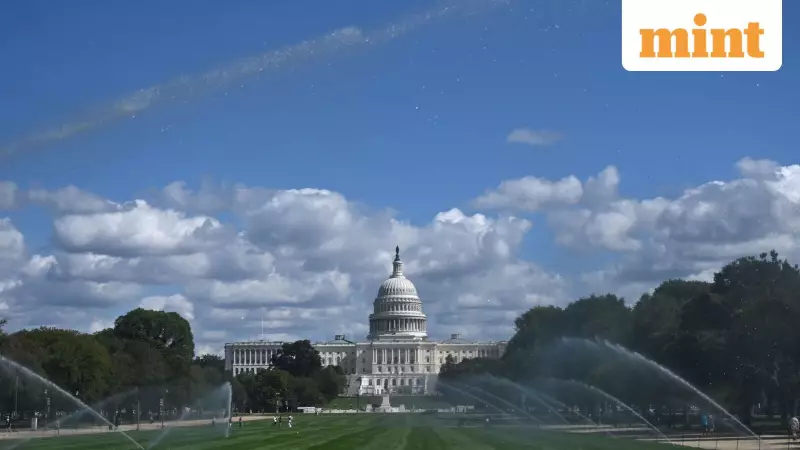
The United States House of Representatives is poised to vote on a critical legislative package to end a record-setting government shutdown that has stretched for over a month. This deal, expected to pass as soon as Wednesday, aims to reopen federal operations and address a range of issues stemming from the political impasse.
Key Components of the Shutdown Agreement
The proposed legislation extends funding for a significant portion of the federal government until January 30. It also secures full-year appropriations for the Agriculture Department, military construction projects, and the legislative branch itself. However, the bill contains several other pivotal provisions that have sparked intense debate.
Victory for Federal Employees: Reversing Firings and Guaranteeing Back Pay
In a significant win for government workers, Senate Democrats successfully negotiated language that guarantees the reversal of federal layoffs initiated by the Trump administration during the shutdown. The bill explicitly prohibits any further mass firings at least until the January 30 funding deadline.
Furthermore, the legislation mandates that all federal employees who missed paychecks—whether they were furloughed or required to work without pay—will receive their back pay. This provision directly counters a previous suggestion from the White House that furloughed workers might be denied their missed wages.
A Controversial $500,000 Surprise for Senators
Perhaps the most contentious element of the deal is a last-minute addition to the Senate bill. This provision allows senators, but not members of the House, to sue the federal government if investigators collect their records without their knowledge. Crucially, it is made retroactive to 2022, a move that covers the Justice Department's collection of phone records from eight Republican senators during former special counsel Jack Smith's investigation into President Trump's actions concerning the 2020 election.
This clause paves the way for potential payouts of $500,000 each in damages to the affected senators. The provision has drawn sharp criticism from lawmakers on both sides of the aisle. House Minority Leader Hakeem Jeffries (D., N.Y.) labeled it a "multimillion-dollar slush fund" for eight Republican senators. Rep. Chip Roy (R., Texas) expressed bewilderment, stating it was "beside my comprehension that this got put in the bill." Despite the outcry, Republican leaders indicated they would address the issue after passing the broader package to avoid prolonging the shutdown.
Other Critical Measures in the Package
The shutdown deal also encompasses several other important areas:
Healthcare Subsidies: While the bill itself does not extend enhanced Affordable Care Act subsidies, GOP leaders in the Senate pledged a vote on the Democrats' proposal by mid-December to secure their support. Senate Republicans are also expected to get a parallel vote on their own approach to the expiring subsidies.
Enhanced Security Funding: In response to the shooting of Charlie Kirk and other attacks on political figures, the bill allocates major new security funding. This includes $203.5 million for House and Senate security, $28 million for Supreme Court justices, and $30 million for the U.S. Marshals Service to protect executive-branch officials.
Unfreezing Washington D.C. Spending: The measure provides relief for the District of Columbia by lifting a spending cap imposed by a March law. This restriction had forced D.C. to revert to its 2024 budget, creating a significant shortfall. The new deal allows the city to spend its own tax revenue in line with its council-passed budget, a move supported by former President Trump.
New Hemp Regulations: The legislation rewrites the federal definition of hemp, effectively banning the sale of hemp-derived intoxicating products like gummies, drinks, and vapes one year from now. This change, which led to a heated debate between Kentucky Republicans Sen. Rand Paul and Sen. Mitch McConnell, deals a major blow to the fast-growing, largely unregulated hemp industry. The new language defines hemp to exclude products with more than 0.4 milligrams of THC per container or any synthetically produced cannabinoids.
Funding the Wedgetail Radar Jet: In a move that overrides the Air Force, lawmakers have injected new life into Boeing's E-7 Wedgetail radar jet program. The bill adds $400 million for research, development, and prototyping. This decision comes despite the Air Force's attempt to cancel the program, citing survivability concerns, delays, and cost overruns. Lawmakers acted due to worries that the Pentagon's alternative plan using space assets would not be ready in time.





